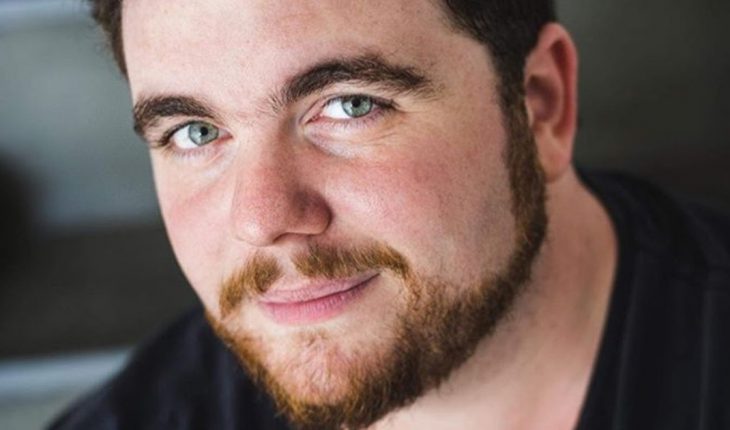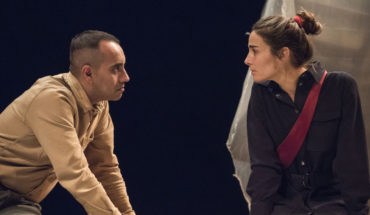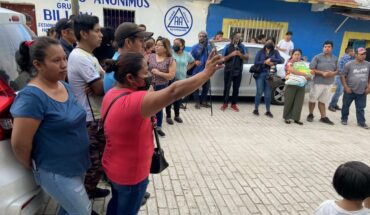March was going great. Gastón Cocchiarale presented “This is only half of everything you told me” in the Kairós Method and planned his arrival at the Picadero Theater with “Jauría”, in addition to his arrival at the cinema with other premieres. However, March 20: restriction and the beginning of the mandatory quarantine in Argentina and with it the largest curtain drop for the shows. Maybe life is a little bit that, jolts. But this jolt, which once again deepened class inequalities, put art at one of the centers of the scene: the art that supports, resists and accompanies. Perhaps in the form of music on the headphones of a doctor who returns home by public transport, perhaps as a novel, or a fiction that entertains before going to sleep.
“Carlos Rottemberg used a phrase that I think is ideal to apply: ‘We were the first to close and we will be the last to open'”,” Gastón Cocchiarale told Filo.News when analyzing the impact of the pandemic on the Argentine entertainment industry—”That speaks of the blow that the activity is going to suffer. This virus prevents social rapprochement, so we will have to see how to re-operate the machinery of making works and films, complying with those health standards. It is a tremendous hecatombe but I do not want to victimize myself because just as it happens to us it happens in almost every area, such as party rooms, recitals, stadiums and football clubs, those bring together an agglomeration of people; and just what is being asked is that that doesn’t happen. We are facing a rather worrying picture.”
“Small Stories of Quarantine,” directed by Gastón Cocchiarale Photo: Press Courtesy
“There are so many stories to tell. We all stopped life so particularly that it is inevitable that they will not be generated,” he added, while still sketching out what now comes as his new theatrical show: “Small Quarantine Stories.” The proposal. Five stories of about ten minutes each. Everyday stories, well, not really, stories of this “new normal” that we have been going through, away from friends and affections, and mediated by technology. Lights, camera… streaming?
The stories, written and directed by Cocchiarale in conjunction with Julieta de Moura is a proposal to leave quarantine but at the same time be inside it, and explore how the links flow and interact. And here is the genesis of the work in question.
In mid-March the actor, best known for coming to the cinema as Maguila Puccio (in Pablo Trapero’s “El Clan”, 2015) and for playing David Lowenstein in the fiction “Argentina: Land of Love and Revenge” (Pol-ka, still in force on the small screen) wrote his first ideas with the complexity of creating while in confinement.” And a fortnight ago I woke up with the idea: I want to do a virtual show with my students. I don’t know how I’m going to do or what’s going to happen to that, but I want to do it and from there we start working,” she says.
Juliet De Moura, Gaston Cocchiarale and Victoria Municoy Cranial Photo: Instagram @gastoncocchiarale
The young actor founded the art school Creer es Crear, which now continues to teach but in digital format, which was another of his challenges in this context. So his students set up the machinery: they put on lights, they environmentalized scenes, and all without leaving the house.” I thought it was a good project for my drama school, an exercise in which they could be identified, and that had to do with the current situation to laugh or make some catharsis with that. We are very happy to meet this project: as an oasis in the middle of the desert,” he says. Tamara Liberati, Victoria Municoy, Sebastián Bauza, Bianca Vicari, Tomás Pinto Kramer, Julieta de Moura (also assistant in Creer es Crear), Matías Leites, Antonela Scattolini Rossi, Ulises Barzi and Malena López give life to interesting characters, full of nuances and who invite us to reflect on situations that today confront and cross us.
“We sold over 400 tickets we can’t believe it,” says Gaston, visibly excited about what his premiere meant last weekend. This Friday, July 31 at 9 p.m., you will be able to access “Small Quarantine Stories” again, a work that arrives through the streaming and that allows you to watch it at the time that the viewer wants to date available. Tickets available and to the cap through Theatrical Alternative.
The last time we chatted, it was to discuss the deep moment that mischievously the entertainment industry. And now you’re releasing “Little Quarantine Stories,” nothing less than your own work, how do you live that?
It’s true. We talked about the industry and how difficult it was, this crisis continues to deepen unfortunately. “Small quarantine stories” emerged as a cultural resistance to the dreadful context that surrounds us within the industry that it received one of the strongest blows in its history. This virus attacked from the crowd of people and we live off that. The equation we are living is very complex. The play also arises from the need to do, to continue to exercise the office, to say: “If the theaters are not open I will continue to act, produce, direct, write”. I’m very happy. I wrote it with Juliet de Moura, assistant of my theater school Creer es Create that produces this virtual show in conjunction with the theater company with whom we were doing “This is only half of everything you told me” in the Kairós Method, which after five or six functions we had to stop doing for the pandemic.
We are faced with an instance of paradoxes: on the one hand, the industry is living one of its most delicate moments, on the other, we are constantly resorting to art to accompany quarantine; on the one hand the impossibility of working and on the other, seizing confinement as a time to create how do you live these contradictions? When did you click to create this work?
We’re facing an incredible paradox. I believe that fiction, reading, music, streaming have played a key role for many people who have been able to sustain themselves financially during this pandemic. I think it is important that we resave the concept of ‘essential’.” I don’t know to what extent a TV show with panelists – without belittling that work – is more or less important than fiction.
Gastón Cocchiarale in dialogue with Filo.News
On the other hand, it was very difficult to create in these circumstances because at least my way of producing something connects with life: because of a situation I see in a bar, I detect on a birthday, or on the street. And all that wasn’t because life went on to be summed up while one’s house. The interesting thing about “Small Quarantine Stories” was to create from what is happening to us in this new normal where communications and links are given from the virtual.
A little these contradictions are seen in one of the accounts of the work, this balance that leads us to think what is more indispensable or essential, visit us to accompany us, or not expose ourselves to save us? Do you have these questions?
Yes, of course I get those debates. The story you mention, which is that of premiums, arises from something that I was told that I found it incredible because the feeling was so painful: I will not visit the person so as not to expose him to the virus, but also not to visit him can cause an anguish. I really like that scene because it’s very contradictory. On the one hand, one of the cousins gets angry and offended because the other went to visit Grandma and is right, because they are putting their lives at risk; but the other’s argument is, “For me to bring a smile out of my grandmother is essential,” and you also understand her. I think we’re all facing these kinds of situations as humanity. All the time we wondered how to balance this situation that shook us all completely because he messed with our most sacred rituals such as kissing, encountering, hugging.
Was it a challenge to think of a play that was completely mediated by video calling?
Something curious happened because I wanted to put on a virtual show that has a theatrical format and this one came about that actually corresponds more to a cinematic format. So we had to see how to generate a homogeneous mix between those two languages. It was a huge learning challenge. That is why I always try to surround myself with collaborators who have more experience than I do, and in this case was joined by the audiovisual director Nicolás Dominikow, a great friend of mine who came to take care of that role that I do not know that is the assembly, editing, lighting in front of a camera that he made with each actor with what they had in their houses from a video call by Zoom. Sebastian Bauza also joined so that the work had original music.
Without spoiling, I think there is one of the moments of the work that is very important, also because of the relevance of talking about these issues on the screen. Understanding that they are very representative, what did you rely on to choose the themes of each story?
What’s interesting about each story is that it mounts its own world with different characters and links which brings great dynamism to the virtual show. Each scene lasts 10/12 minutes and what I wanted to achieve was just to generate a dynamism in the face of the stillness that a zoom call can have: in which there are only two people in front of a camera.
GasCocchiarale toon Photo: Instagram @gastoncocchiarale
And we created these easily identifiable stories in such an atypical and unusual context in which humanity was fully seen with the conflicts that continue to cross us.
What is Gaston’s process like to write, then direct it and capture it in the image?
My process has a rule: to go forward in fear and without fear. I always try to trust how I feel and when I notice that a material has that something I like to make the decision to do it without asking me so much. I don’t have much filter when it comes to making decisions, I can do well or wrong but I try not to stay in the stillness and doubt. This is a situation where we are not yet aware of what we live through: from the social, economic and psychological. And in the midst of all that, finding this oasis of creating saved me. Art has always saved my life and I dedicate myself to that because it is in the only space in which I am fully found; the same thing happens to me when directing and producing.
One of the wonderful characteristics of art is that it leaves us a material that remains in time and accompanies, “no matter when you read/see/hear this”, they would say in networks what message – besides having already left something with this work – would you like, precisely, to contribute?
If I’d like to leave a message I think it has to do with doing. I am proud of my team, and that I have been able to achieve a project in the midst of the situation we are experiencing: I will remember it with great affection throughout my life. Pepe Soriano, Luis Brandoni, Agustín Alesso, Lito Cruz have made open theater in the last dictatorship, a movement of cultural resistance against those artists who were banned with the risk of being killed. That’s what happened to me: if those legendary people made such a manifesto with a much greater danger than mine, I can’t eat the snot. This work came from that: that artists adapt to whatever comes. We can’t perform in theatres, let it be on screens; you can’t on the screens, make it in a square and if it’s not in a square that’s on the balconies. We can’t escape our passion and we’re going to go forward.” Small quarantine stories”, a work made and released in quarantine, which explores in the privacy of being crossed by the pandemic. A letter of resistance in times where art is refuge and resistance. Available 21 hours from Alternative Theatre.
In this note:





